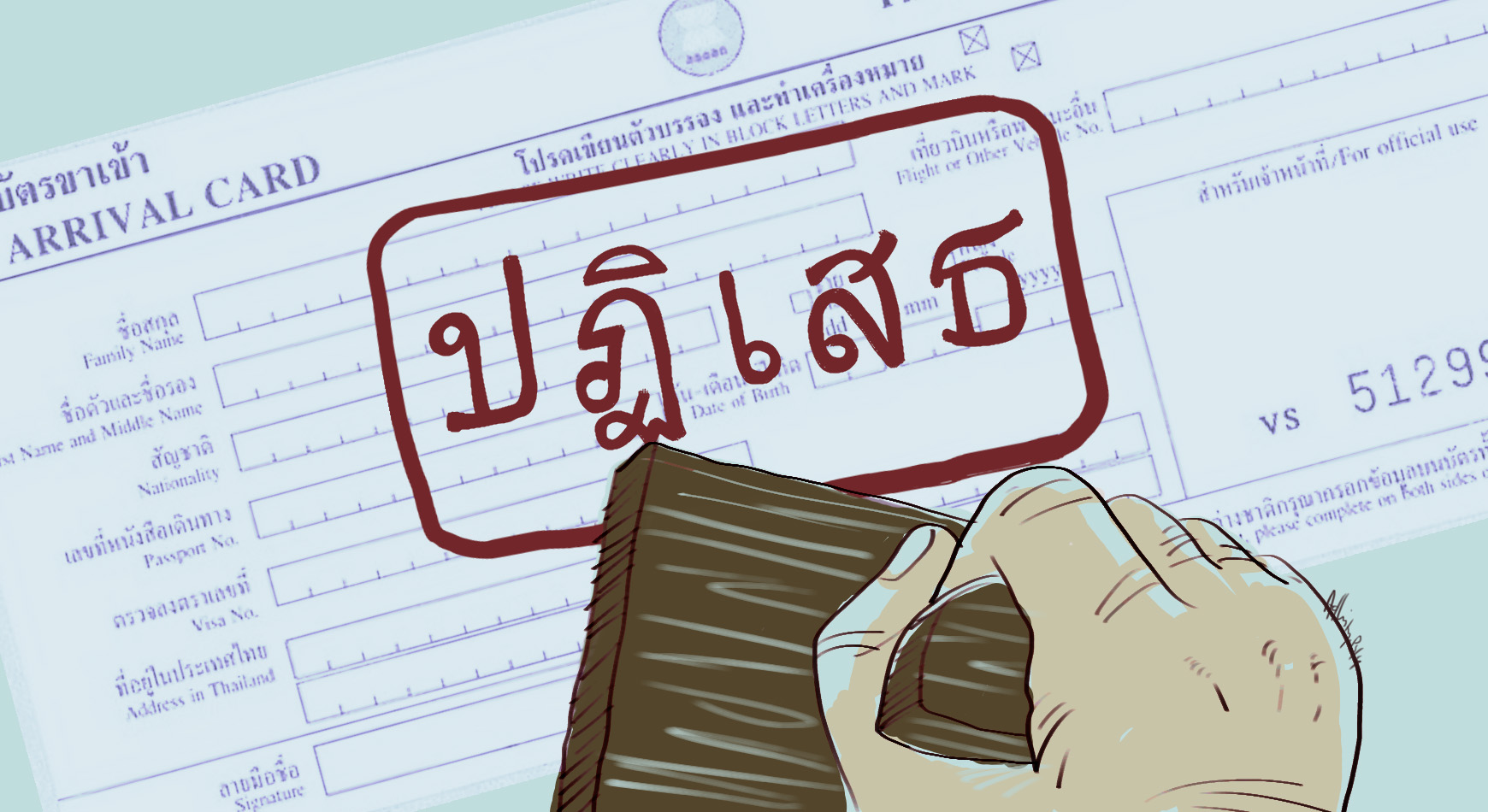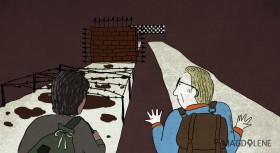I started my long travel early April 2014, leaving hectic Jakarta for Thailand, where my traveling partner was waiting for me. To be honest, I didn't plan to stay long in Thailand, because my aim was to head down under to seek some fortunes in Australia.
My partner gave me an idea to visit India before Australia. What a wonderful idea! It is a country of my dream. My mind went wild picturing myself wearing a sari and walking around Taj Mahal. So we tried to apply for the Indian visa in Bangkok.
With the required documents we went to an international agency that processes Indian visa. Unfortunately, my partner’s application was rejected even before we got a queue number.
"We cannot proceed your application if your passport only has one blank page," explained the official at the agency.
She told him to make a new passport, which was a good idea for his traveling plans. So, he went to his embassy to make a new passport, a process that would take about a month.
Meanwhile, I was in a dilemma, as I only had a 30-day permit to stay in Thailand and it was two more weeks before my visa expired. Since we wanted to go to India together, I needed to wait for him, so I looked for a way to be able stay longer in Thailand.
A friend of mine who was an expatriate in Thailand advised me to do a visa run by crossing over to a neighboring country to get an entry and exit stamp. The other option is to apply for visa outside Thailand.
I chose the former. My plan was to do two visa runs through the land borders. For each entry through land I will receive a 15-day stay permit, which will give me a total of 30 days. That is more than enough time to wait for my partner’s new passport to be delivered, before we could apply for the Indian visa. The most common borders to do this business are the ones at Aranyaprathet and Nong Khai that bordered respectively with Poipet, Cambodia, and Viantiane, Lao PDR.
Close to my visa expiration date, we were in Chiang Mai, where the closest border is the Chiang Khong and Lao’s Huay Xay. For the second one we would go to the Aranyaprathet-Poipet border.
It took five hours by bus to reach Chiang Khong from Chiang Mai. A tuk-tuk driver offered to take us to a guesthouse. It was 5 p.m. and raining, and we were carrying heavy backpacks, so we gave him a nod. It was a beautiful guest house by the Mekong River. From the common room we could see Lao, so I thought it would be a good experience to cross the border through the river.
But the owner of the guest house told me we couldn’t go to Lao by wooden boat anymore, because the crossing was closed by the end of 2013. Instead, we have to go 10 km away to Friendship Bridge IV that connects Chiang Khong and Huay Xai.
Around 7 the next morning, I hired a tuk-tuk with a Canadian tourist to go to the Bridge. The officer asked me several questions in Bahasa Indonesia, which I’m sure they picked up from the growing number of Indonesian tourist now. For 25 Baht, I took a bus to cross the bridge to Lao.
It was around 8.30 a.m. when I arrived in Lao's border. I could go back to Thailand right away after entering Lao, but I decided to visit the old border and see the slow boats that take travelers to Luang Prabang via the Mekong. I paid 100 Baht to get to the jetty, where I stood and realized that my guest house across the river was only meters away from the old border.
When I returned to the Thai border, the officer didn’t make any remark about the entry and exit Lao stamps made on the same day. They were probably accustomed to tourists doing the same thing. My first visa run was successful!

The Second Run and the Coup
The joy didn't last long, however. Two days after my first attempt, Thai immigration office released a new law that prohibits people from doing multiple visa runs. They can do it only once. If they want to stay longer, they have to apply for a tourist visa outside the country.
I read on www.thailandvisa.com that some tourists were not allowed to exit the country via Mai Sai, which borders with Myanmar. Later, I found out, however, that despite Myanmar’s reputation for being strict, you could actually bribe its officers to give you the entry and exit stamps.
The decision was likely a response to the misuse of tourist visa by foreign visitors in Thailand. For example, many citizens of Southeast Asian countries who enter Thailand with a tourist visa are said to work illegally.
So, for my second visa run I decided to go to Vientiane and apply for tourist visa. In the mean time, we spent some time in Chiang Dao surrounded by beautiful mountains.
The whole time we were staying in Thailand, a political tension had been brewing ahead of the July Election. And on May 20, a night before I left the country to extend visa, the military took over the government (though the military said it wasn’t a coup). My partner advised me to be extremely careful during my 10-hour trip from Chiang Dao through Chiang Mai to Vientiane, but it turned out that his concern was unwarranted. Hundreds of kilometers away from Bangkok things looked pretty normal, and there were no signs of political conflicts. Mostly people didn't care about what was happening in the capital.
It took me one full day to get my Thai tourist visa, and two days later I returned to Bangkok from the Nong Khai border by train. It was about 30 minutes before the train entered the country, when I received a text message from a friend in Bangkok: the military had declared a coup at 4 p.m.
I calmed myself – from the train everything looked normal after all. My friend had told me not to wear red, yellow, or black clothes, all of which could associate me with one of the conflicting groups. I was also told of the 10 p.m. to 5 a.m. curfew. I was relieved because at least during that time, I would still be in the moving train.
At 2.30 a.m. the train stopped. The woman sitting across from me kicked my foot to wake me up. As I gathered my consciousness, two armed soldiers entered the train and checked every compartment.
The train stopped at the last station Hua Lamphong in Bangkok at 4.30 a.m. I didn't want to leave the station, and it was still early to check in to a hostel, so I decided to stay until noon. But soon a group of people was approaching, wearing "Restart Bangkok” that is usually associated with the anti-government supporters.
I had no idea who they were and was too scared to find out, so I changed my mind, leaving the station and checking in to a hostel on Khaosan Road. People say it is better to stay at touristy areas because there would be no protesters.
True enough, we didn’t feel the coup at Khaosan Road. The only thing different was the nightlife because the bars had to close at 10 due to the curfew. That was the least of my concern, though – all I wanted was to get my Indian visa, which I eventually got 10 days later.
Three days after my visa was approved, I flew out of Bangkok to India. But what a time to be in Thailand it had been.
About Efi Yanuar
Efi spent five years of her career life working as a journalist. She quit her daily routine covering business stories in Jakarta and packed her backpack to see what the world has to offer.








Comments